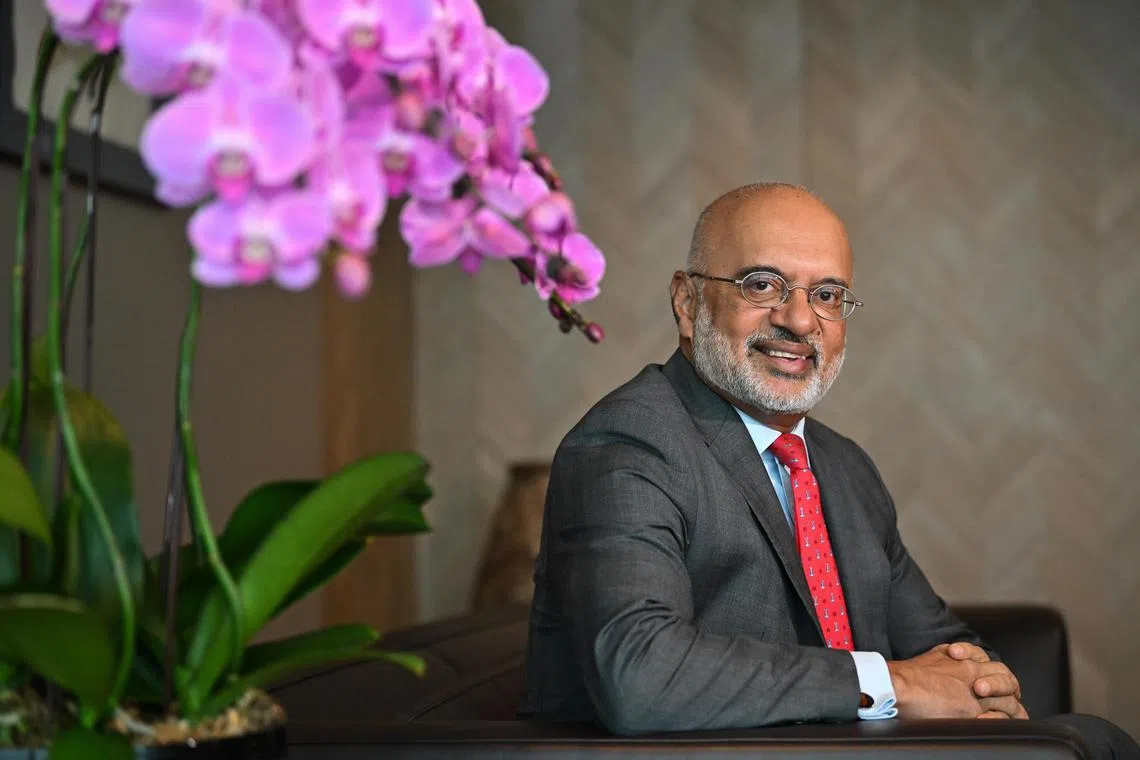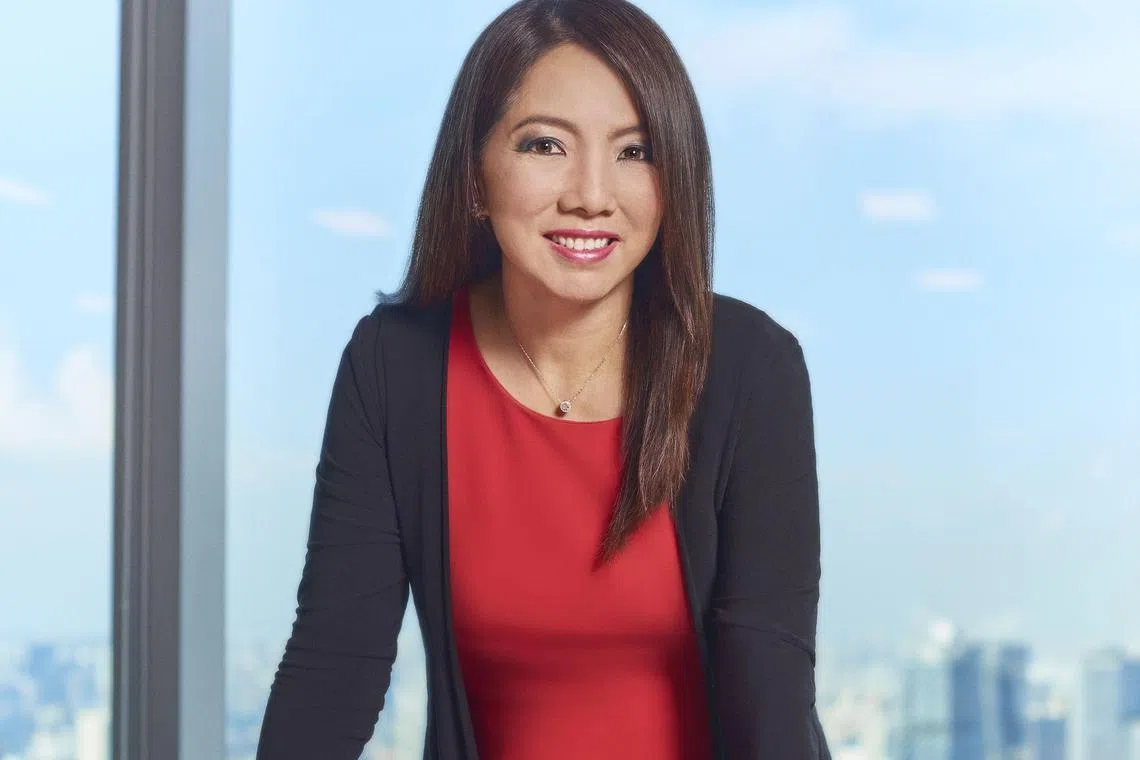Outgoing DBS chief Piyush Gupta’s 2024 pay rises to $17.6 million after bank’s record earnings
Sign up now: Get ST's newsletters delivered to your inbox

The bulk of DBS CEO Piyush Gupta’s 2024 pay package came from a deferred award of $9.36 million, to be paid mostly in shares.
ST PHOTO: LIM YAOHUI
Follow topic:
SINGAPORE – Outgoing DBS chief executive Piyush Gupta received $17.58 million in total pay for 2024, higher than what he took home in 2023, according to the bank’s annual report released on March 6.
This comes as the bank achieved a record performance in 2024 as full-year net profit rose 11 per cent to $11.4 billion, with return on equity (ROE) at 18 per cent.
“The bank’s stellar all-round performance, as well as its improved technology resiliency, resulted in a higher scorecard appraisal by the board compared to the previous year,” DBS said in the report.
It said Mr Gupta’s higher remuneration came about after factoring in the scorecard performance and normalisation in compensation following a reduction taken in 2023 in response to senior management taking accountability for digital disruptions.
This saw Mr Gupta’s pay in 2023 fall 27 per cent to $11.2 million.
Compared with 2022, his 2024 pay was up 14 per cent from that year’s $15.4 million.
The bulk of his 2024 pay package came from a deferred award of $9.36 million, to be paid mostly in shares. The rest was made up of a cash bonus of $6.65 million, a base salary of $1.5 million and other payments of $80,533 comprising club, car and driver benefits.
In February, Mr Gupta said the bank is planning to cut 4,000 contract and temporary staff through natural attrition over the next three years as artificial intelligence (AI) increasingly replaces humans.
In the annual report, Mr Gupta noted that generative AI will have a profound impact on the nature of work and jobs. “We have to fully embrace the possibilities, which should lead to a fundamental rethink of our operating models and even the creation of new business models,” he said.
Reflecting on his career, Mr Gupta said: “In less than a month, I will be retiring from DBS after 15 years at the helm. Looking back, this has, without a doubt, been the most fulfilling part of my entire career.”
He said that he joined DBS in November 2009, when the industry was in the throes of the global financial crisis. Some years later, the bank met competition from fintechs and DBS further redefined banking by leveraging technology, he said.
On what made DBS’ digital transformation successful, Mr Gupta said the bank transformed “everything from the technological architecture in the back end to customer interfaces at the front end”.
DBS also moved away from product silos to thinking about customer journeys, changed the bank’s culture into one that embraced innovation and put in place a system to measure progress.
Mr Gupta is set to pass the baton to Ms Tan Su Shan, currently deputy CEO and group head of institutional banking, when he retires at the next annual general meeting on March 28.
In the annual report, DBS chairman Peter Seah said Ms Tan has been pivotal in developing major digitalisation initiatives such as DBS digibank, PayLah! and iWealth.
She drove the development of a number of AI models and spearheaded efforts to apply generative AI within the bank, he added.

Ms Tan Su Shan, currently DBS’ deputy CEO and group head of institutional banking, is set to take over from CEO Piyush Gupta.
BH
Ms Tan noted that the last 15 years have shaped DBS into a high-performing, high-returns institution, with its ROE in 2024 being one of the highest among developed market banks.
Despite the challenges ahead, there are plenty of opportunities, she said. The bank has built strategic moats and is in a strong position to continue delivering healthy shareholder returns and outperforming peers, she added.
Over the last 15 years, DBS’ market capitalisation has quadrupled from $35 billion in 2009 to $124 billion in 2024, the annual report showed. In May 2024, the bank became the first Singapore-listed company to cross $100 billion in market value.
ROE has more than doubled to 18 per cent in 2024, from 8.4 per cent in 2009.
Total shareholder returns for 2024 were 51 per cent, the highest in DBS’ history outside crisis-rebound years, comprising a share price gain of 44 per cent and a dividend return of 7 per cent.
Its consumer banking customer base grew to 18.4 million in 2024, from 4.9 million in 2009, on the back of organic growth, strategic acquisitions and strength of partnerships.
The bank’s workforce grew significantly to 41,000 employees in 2024, from just 14,000 in 2009, DBS noted.
DBS shares closed 0.75 per cent up at $45.96 on March 6.

